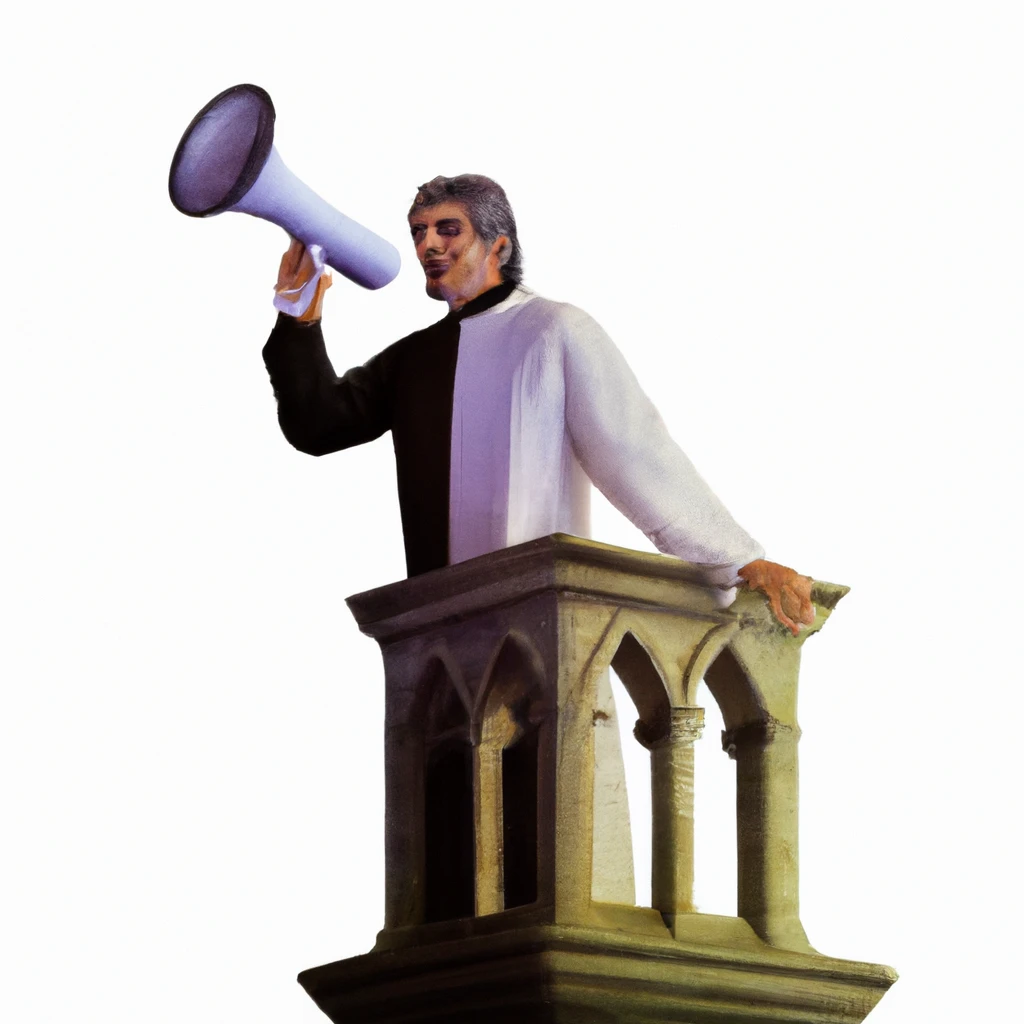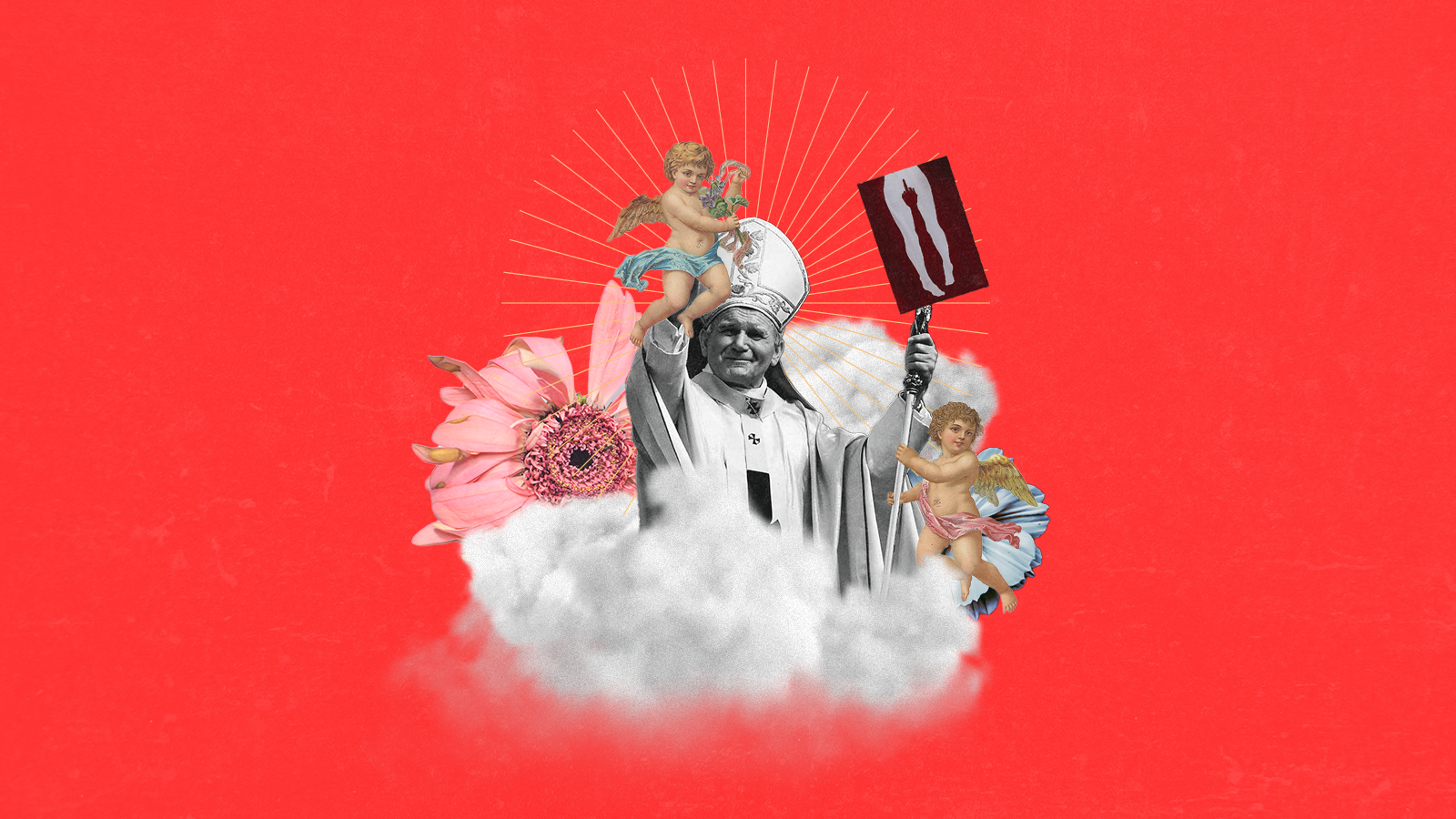The 21st century has undoubtedly put religion in a new perspective: while Christian communities took the continuation of tradition for granted a few decades ago, today’s youth started to question the importance of religiosity, not to mention the religious institutions’ moral integrity. Poland is no exception; the Central European country’s history and identity are rooted in Catholicism, but the importance of religion now started to fade away. So, what events triggered the starting fall of religion, and how will Polish society be transformed?
Pope Saint John Paul II
The world constantly changes; religious, ideological, and political trends can come and go. Europe, including Poland, one of the most Catholic countries on Earth, is now facing an unprecedented crisis concerning its belief system and identity. The Catholic religion has served as a bastion of common identity throughout Poland’s history: Poles could find peace or express their resistance with their faith even under the brutal Nazi or Communist regimes. During the decades of communist rule, for instance, there were anti-religious campaigns to turn Poles away from Catholicism; at that time, practicing the Christian faith meant resisting and maintaining the Polish identity. Moreover, the first Slavic pope was also from Poland: John Paul II was the head of the Catholic Church from 1978 until his death in 2005 and a key figure in Polish history and identity, who was canonized in 2014. After the Polish democratic transition in 1989, the Catholic Church regained its freedom also in the Pope’s homeland and was able to rebuild everything the previous regime forbade and destroyed. Catholicism has entered many areas of Poles’ daily life surprisingly quickly, including areas where many believe it has no business. The trends of the past have now been reversed: a growing proportion of society is not turning to Catholicism to escape other oppressive ideas anymore but instead looks at the Catholic Church with a highly critical eye. People with more radical views even see it as an oppressive power.
What has led to this point?
Unsurprisingly, the highest level of apostasy is among urban youth: around 70% of Polish youth were active religious practitioners in the early nineties, but by 2021 this proportion had fallen to less than 25%. Of the total population, 43% were regular religious practitioners in 2021; in 1992, this figure was still at 69%. While the number of active practitioners has fallen sharply by the 2020s, the number of more passive but self-identified believers has remained relatively high: the figure was 87% two years ago, which is very high compared to other EU countries. But a turning point came in the past two years.
The pandemic’s outbreak undoubtedly impacted religious practices: besides the coronavirus’s more pragmatic threats, an ideological decomposition also started due to several reasons. Since the conservative Law and Justice (PiS) party came to power in 2015, the Catholic Church has played a prominent role in Poland with increasing power and influence due to the significant financial support it gets. For example, the PiS-led government has earmarked the highest amount ever, €44.5 million, for the Catholic Church in 2023. This considerable influence can then easily turn into a stranglehold: for instance, the Catholic Church wants to have a say and is able to impose its will on matters which a significant part of society, especially the youth, does not consider to be its business. Examples include abortion, education, and the rights and treatment of sexual minorities. Moreover, the social tension has been exacerbated by the last few years’ scandals: it is now visible that the Church is not a morally unblemished institution, as sexual abuse, corruption, oppression, and greed have all been linked to it.

The views and regulations on abortion are crucial questions when discussing anticlerical tendencies. Massive protests swept through Poland more than two years ago following the ruling in October 2020 that made almost all cases of abortion illegal and unconstitutional, including the cases of fetuses with severe disabilities or diseases. The Constitutional Tribunal’s decision was finally officially proclaimed in January 2021. Polish abortion laws were already very strict before this step, but this decision made having an abortion almost impossible in Poland. The Catholic Church and its criticism have played a significant role in this culture war. The fact that the Polish government could push through the severe restrictions in 2021 sent the message to many Poles, especially women, that the ideals of the Polish Catholic Church do not fully serve and protect them concerning abortion. Many Poles started to wonder: what other areas of their life would the Catholic Church’s hand reach?
Is the image of John Paul II changing?
The Catholic Church has also come under public scrutiny over the past few years for many sexual abuse cases committed by church employees, which were often open secrets within its inner circles. These kinds of recognition are a global trend, and Poland’s Catholic Church also had to face severe abuse allegations. Between 2018 and the end of 2020 alone, nearly 300 priests were the subject of harassment complaints. Finally, Wojciech Polak, Archbishop of Gniezno, apologized for the incidents. The occurrence of such abuses shocked Polish society, and the issue recently became even more sensitive: accusations and speculations started to spread about Polish Pope John Paul II’s role in the systematic cover-up of the cases.

Stories that can significantly change the late pope’s image and even turn John Paul II’s public perception into a political battlefield come to light. According to the early March news stories John Paul II, as Archbishop of Kraków, probably have been aware of the pedophilia and molestation cases within the Church. He also helped to ensure that priests under his jurisdiction were not held accountable for their actions but rather just disappeared from the public eye. Moreover, beyond breaking news, the powerful findings of the investigation also resulted in a 90-minute-long documentary movie: Franciszkańska 3 (the title is the address of the Bishop’s Palace in Kraków) provides a detailed overview of what may have happened in the Polish Catholic Church’s institutions during the era of Archbishop Karol Wojtyła, who later became Pope John Paul II.
The film is based on more than two years of work by investigative journalists who aimed to explore the alleged complicity of the late Polish Pope in the abuse cases of three church employees. Victims, their families, and former archdiocesan staff talk in the documentary. The interviewees have repeatedly confirmed that, to the best of their knowledge, Karol Wojtyła, later Pope John Paul II, knew about the priests who molested children and helped to prevent these cases from being made public, for example, by sending the priests concerned to other locations. He probably did this in an attempt to protect the Church’s reputation and prevent scandals and a massive turn away from Catholicism.
Total political war
It is easy to see why this documentary provokes strong emotions: some are shocked by the discrepancy between the late Pope’s positive public image and his actions and would like to approach John Paul II and the whole Catholic Church with a much more critical and unbiased approach. In contrast, others merely see the emerging news as a well-planned character assassination attempt. Furthermore, the documentary’s release coincided with the publication of Dutch investigative journalist Ekke Overbeek’s new book Maxima Culpa: John Paul II Knew, which also focuses on sexual abuse in the Polish Catholic Church. Overbeek also talked at length in the documentary Franciszkańska 3 but investigated independently of the journalists who made the film.

The Polish political parties are also trying to ride the wave of strong emotions and sharp social divisions: the ruling Law and Justice (PiS) party has taken up the banner of defending the reputation and integrity of the late Polish Pope. Thus, they can also divert Poles’ attention away from problems such as high inflation or corruption scandals. The topic came at a perfect time for PiS, as parliamentary elections will be held in Poland in late 2023. Polish Prime Minister Mateusz Morawiecki has called the accusations „an attempt to start a Polish culture war,” while Minister of Culture Piotr Gliński said that „an attack on the Pope is an attack on Poland.” So, PiS quickly and vehemently started to defend the „greatest Pole” and strongly condemned „the shameful media campaign, based largely on the materials of the communist apparatus of violence,” referring to the fact that the investigative journalists also used materials from the communist secret police files. Nonetheless, it is crucial to stress that the allegations are not only based on the communist regime’s material, as Church records and numerous witness statements were also presented.
Pope Francis, the current head of the Catholic Church, addressed the issue moderately by saying that „things must be put in the context of the era.” He told the Argentine daily newspaper La Naicón that „everything was covered up at that time, and the Church started to deal with this problem only after the Boston scandal broke out,” referring to the 2002 incident in which the Archbishop of Boston had to resign because he did not prosecute priests for pedophilia but instead transferred them to another parish.
Regarding the future of the scandal, the leaders of the Catholic Church will set up a commission of independent experts to look through state and church archives to decide whether the Church’s employees have sexually abused minors. And Pope John Paul II should be remembered as a great Central European who had an immeasurable role in bringing down the Iron Curtain and assisting the region in the democratic transition.
Cover graphics: Roland Molnár

New Skoda Superb to be unveiled soon

Vote for the best new buildings of Warsaw!










